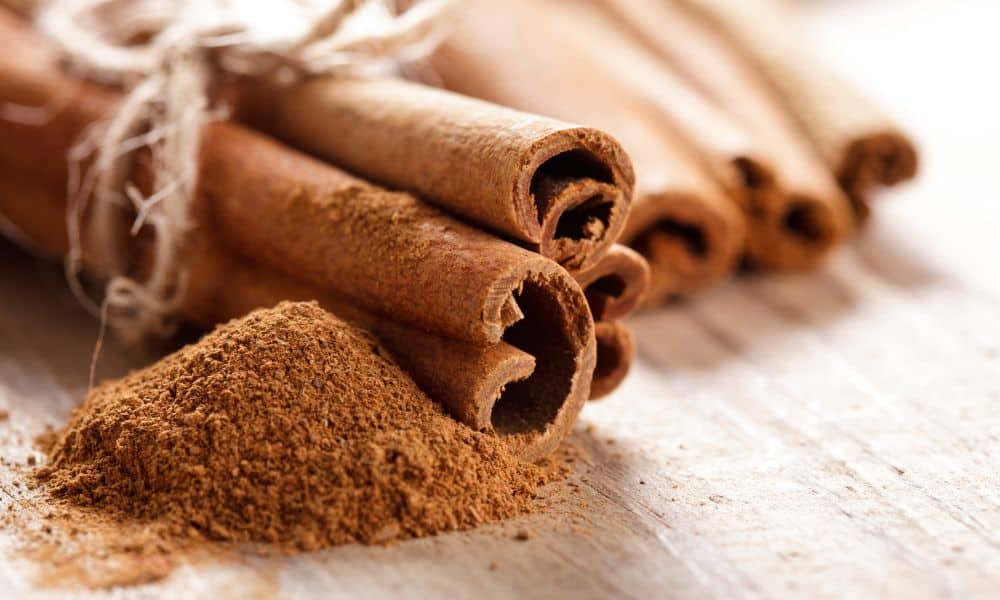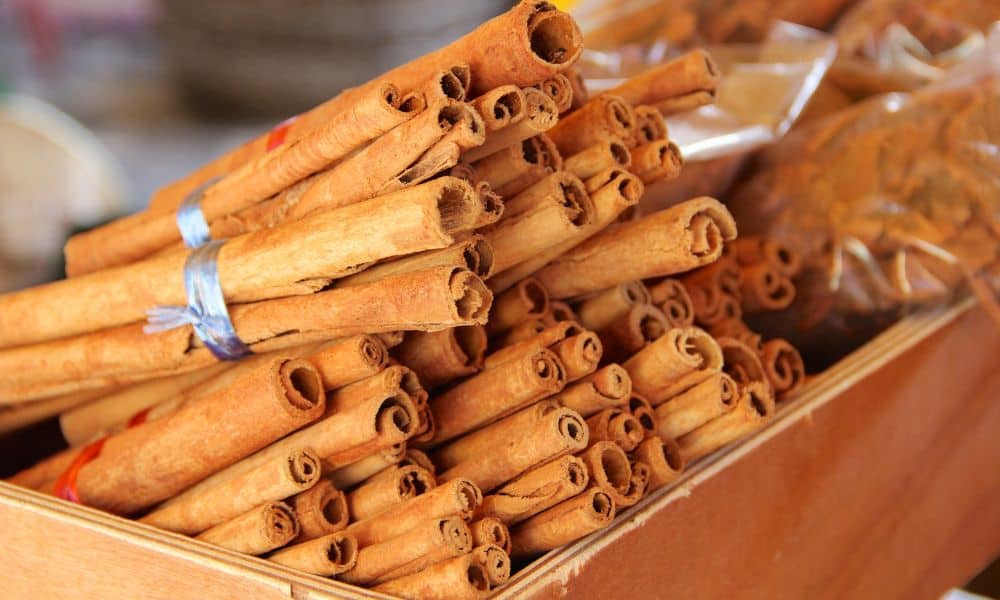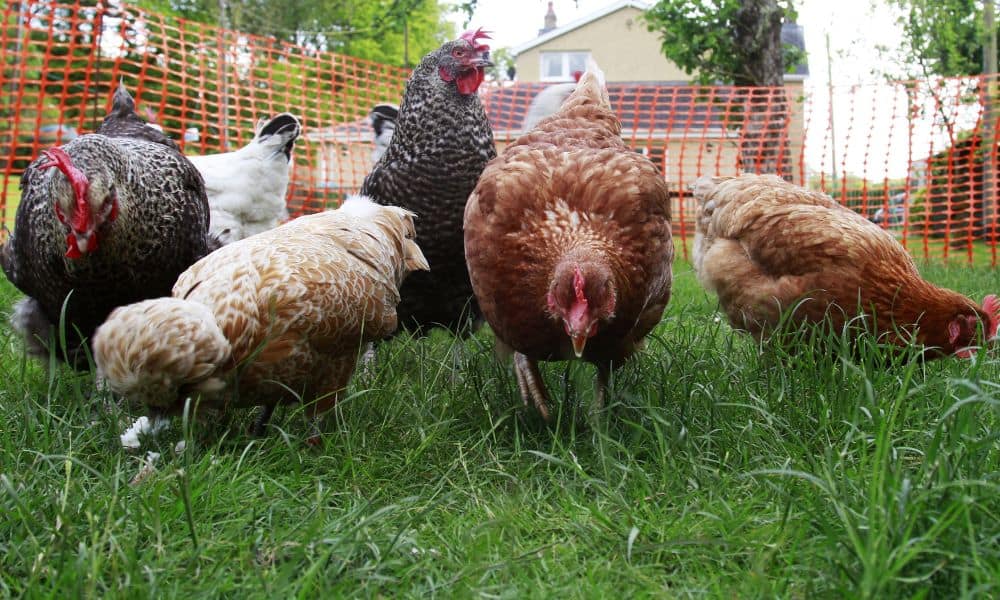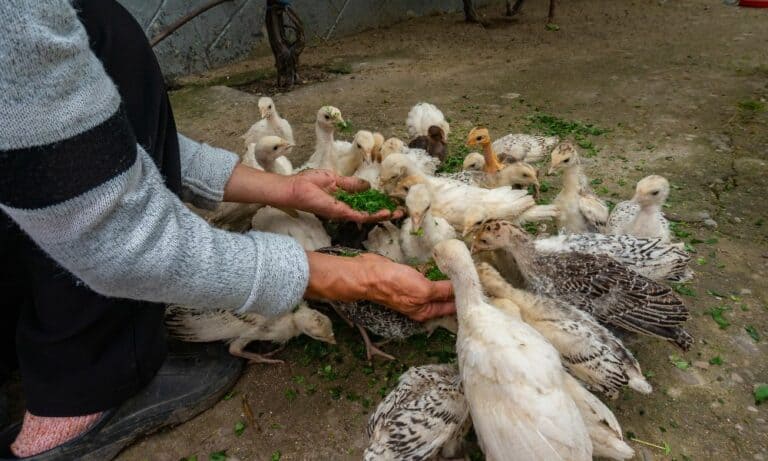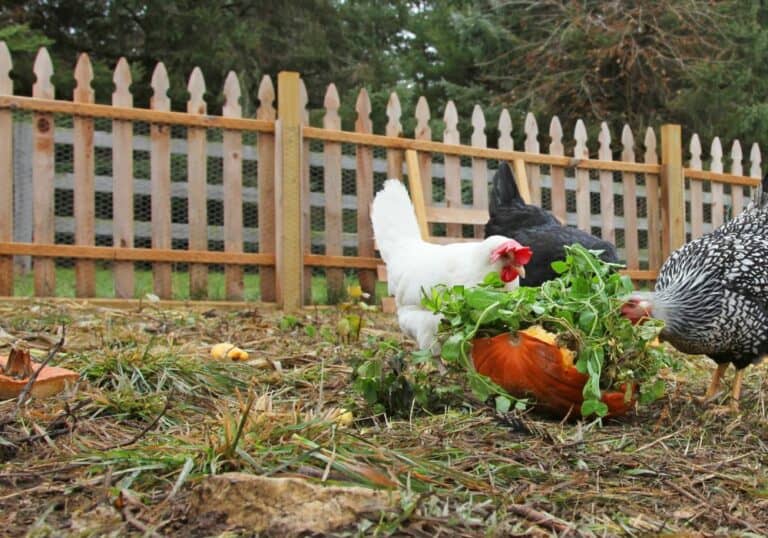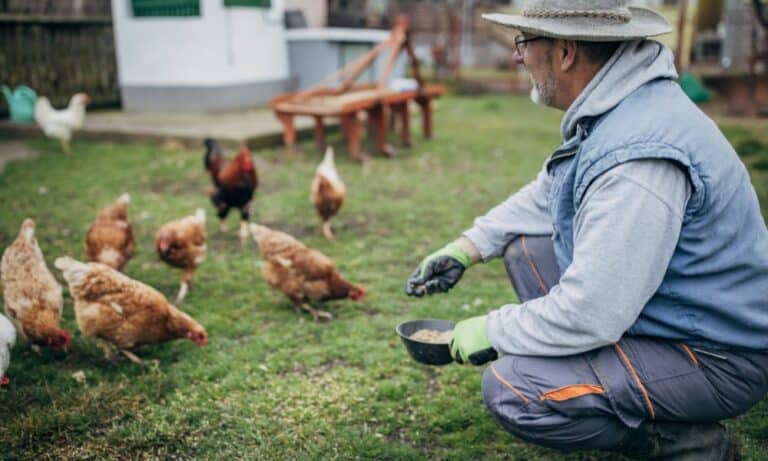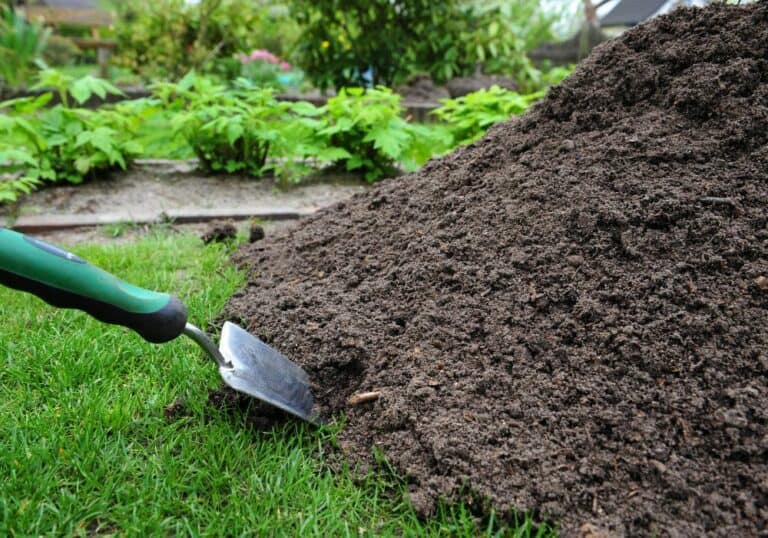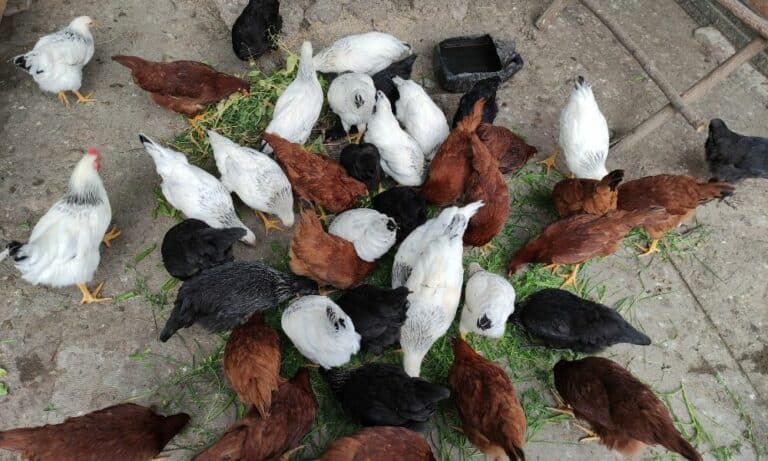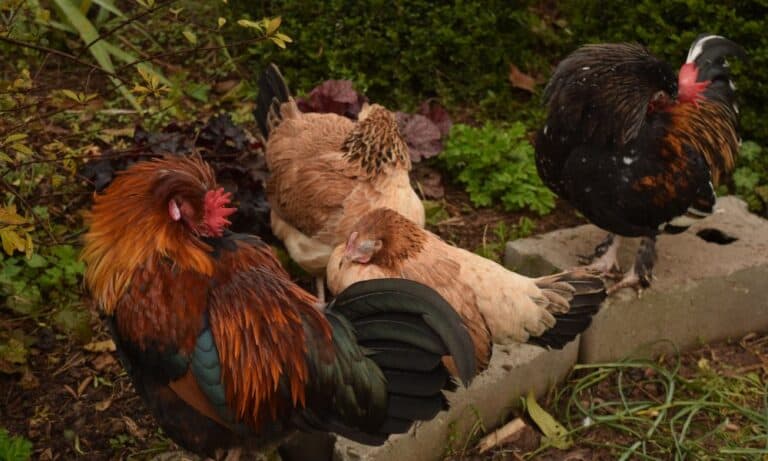If you keep chickens, you’re likely to have read many articles online telling you about the various things you should and shouldn’t feed chickens to keep them in good health – and among those you’ve noticed might be cinnamon.
So what’s the truth about this? Is there any fact behind the idea that cinnamon is good for chickens’ health? Or is it just another baseless online fad? To give you all the info you need about this topic, in this post, we discuss the question, can chickens eat cinnamon?
Can Chickens Eat Cinnamon? The short answer
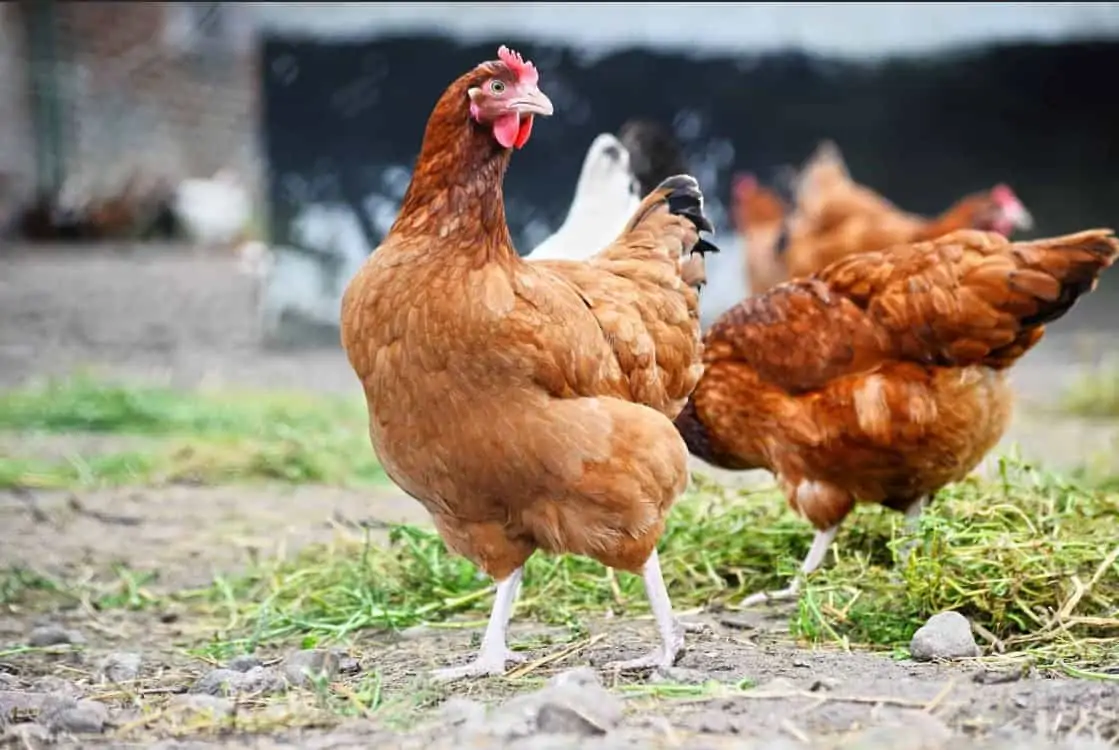
Although the topic of feeding cinnamon to chickens is quite involved, we can start with a short answer to the question.
Can chickens eat cinnamon? Yes, they can.
However, chickens aren’t usually given cinnamon in their feed because they like the taste (although they might!), it’s normally because cinnamon is considered a healthy and beneficial additive that can give chickens’ health a boost in various ways.
But is there any truth to this? And should you start including a bit of cinnamon in the feed you give to your flock? Let’s dive into this debate and find out now.
What is cinnamon?
Let’s start at the beginning – what is cinnamon?
Cinnamon is a spice that’s derived from the bark of several trees belonging to the Cinnamomum genus.
Cinnamomum verum, or Ceylon cinnamon, is considered the “true” cinnamon, but other closely related species including C. burmannii, C. cassia and C. loureiroi are also sold as cinnamon and have a similar flavor, although they are technically known as “cassia”.
These trees are native to parts of South and Southeast Asia, and they have been known since ancient times. Cinnamon had already reached ancient Egypt by 2,000 BCE.
However, the ultimate source of cinnamon remained a mystery to the peoples of Western Europe until around the 16th century when European sailors began heading to the Far East in search of spices, among other things.
Although far easier to obtain nowadays, cinnamon was once a much prized and valuable commodity.
As well as imparting its distinctive flavor to food and drink, it has long been used in traditional medicine and as an aid to digestion, something that may be related to the benefits it has when given to poultry – so let’s move onto that now.
What are the benefits of feeding cinnamon to chickens?

Adding cinnamon to the diet of chickens is thought to bring them many health benefits. Here are some of the most important.
-
Improves nutrition digestibility
Cinnamon has been shown to help chickens receive a greater amount of nutrients from their feed, which in turn helps them gain body weight.
This is because cinnamon plays a role both in stabilizing the gut microbiota and stimulating the release of digestive enzymes.
In other words, chickens can gain more benefit from the food they eat in a more efficient way and less nutrients are wasted.
Separately, broilers that were fed cinnamon were seen to have improved appetites, to gain weight quicker and to have higher overall bodyweights.
-
Lowers cholesterol
Cinnamon is thought to act as a natural lipid-lowering agent or hypocholesterolemic, lowering the levels of cholesterol in chickens’ blood.
-
Improved gut health
Chickens that eat cinnamon have been shown to have increased gut health in terms of having a correctly balanced and healthy gut microflora. This leads to increased levels of “friendly” bacteria that can produce anti-microbial, anti-inflammatory and antioxidant responses.
At the same time, this leads to a decrease in potentially harmful bacteria within the chicken, helping to fight against things like salmonella, E. Coli and staphylococcus to name just three.
-
Improved gut immunity
As well as helping create a healthy balance of gut microflora, cinnamon can also help to increase chickens’ overall gut immunity.
The precise way it does this is still unclear, but it seems that the consumption of cinnamon helps to boost the gut’s natural defenses in several ways.
-
General health
As a result of a combination of all these benefits, cinnamon can help improve chickens’ overall health and well-being, ensuring that their digestive systems remain in good working order and leaving them less susceptible to infection and disease.
Backed by science

Unlike many other supplements that chicken keepers are told to give their chickens to improve their health, the efficacy of cinnamon is backed by experiments and hard science.
With the increasing awareness of the misuse and overuse of antibiotics in the livestock industry, several more natural alternatives were investigated.
Cinnamon was among the most successful of these alternatives to be tested, and as a result, cinnamon has been approved as a phytogenic feed additive by the US Food and Drug Administration.
This led to it being administered to chicken feed in industrial settings since in 2000.
What this all proves, in simple terms, is that cinnamon has real and appreciable advantages when fed to chickens, clearly showing that unlike some of the other stuff you might read online, this is not some kind of quack cure or internet fad with no grounding in fact.
Does cinnamon have any nutritional value?
What about the nutritional value of cinnamon? Does it have any benefits as a source of food as opposed to “medicinal” value?
Cinnamon is especially rich in vitamin K and also contains reasonable amounts of vitamins E and B6. Additionally, it also offers lower amounts of other vitamins, including vitamins C and B3.
In terms of minerals, it is especially rich in calcium, with 100g of cinnamon containing 100% of the recommended daily amount to be consumed by humans.
By weight, it is also a rich source of iron and contains significant amounts of magnesium and zinc as well as lower levels of several other minerals.
However, since chickens are unlikely to ever consume large enough amounts of cinnamon for these vitamins and minerals to have a significant effect, cinnamon is largely to be seen as a dietary additive rather than as a source of nutrition.
Is there anything to watch out for?

So far, it must seem like cinnamon is some kind of magic elixir for chickens, but is there anything to watch out for?
As it happens, there is.
Cinnamon is also known to contain an organic compound known as coumarin, something that can be toxic in both humans and chickens when ingested in high enough quantities.
This means that if you decide to use cinnamon as a supplement for your flock, you need to be careful not to give them too much. Otherwise, it could lead to complications such as kidney and liver damage among other things.
How to feed cinnamon to chickens
If you’re convinced that cinnamon is something you want to feed to your chickens, how should you go about administering it?
The problem is, chickens might not immediately be taken by the flavor of cinnamon, so they’re unlikely to just start pecking up pieces of crushed cinnamon you leave out for them in their run – which are, essentially, pieces of dried-up bark.
Instead, you’ll have to get a bit creative and try to sneak it into their food in a way that means they don’t notice it.
Probably the best way to do this is to sprinkle a little ground cinnamon powder into their regular food so they just swallow it while they’re eating that.
You can start with a small dose so the flavor is hardly noticeable. Then you can gradually increase the amount you add, allowing them to slowly become accustomed to the taste.
This way, you can gradually build up how much you give them until you reach the desired amount.
Chickens can also eat small pieces of crushed cinnamon sticks if you can get them to. However, you need to make sure the pieces are very small or they might pose a choking hazard.
One thing you shouldn’t try, though, is feeding them human food like cinnamon rolls or anything else that includes ingredients that are unsuitable for chickens. Cinnamon rolls contain lots of sugar, so they can lead to all kinds of other health issues if chickens eat them.
How much cinnamon can chickens eat?
As we mentioned before, you should never give chickens too much cinnamon due to the coumarin content, so how much is the right amount?
In humans, the accepted recommended maximum daily intake of cinnamon is 5.6g, so a safe amount for chickens would be around ¼ teaspoon per chicken per day.
Knowing how many chickens you have, you can then calculate how much should be the maximum amount of cinnamon to mix into their feed each day.
Be aware too that if you start adding cinnamon to your chickens’ diet, you should keep a close eye on their health, especially at the beginning – and if you notice any deterioration in their condition, you should discontinue the cinnamon use and consult a vet immediately.
Cinnamon has scientifically proven benefits for chickens
So as we’ve seen, cinnamon has a range of health benefits for chickens, and this is strongly suported by the science.
This means as long as you don’t give them too much, adding a little cinnamon to your chickens’ diet will help them stay happy, healthy and productive.

